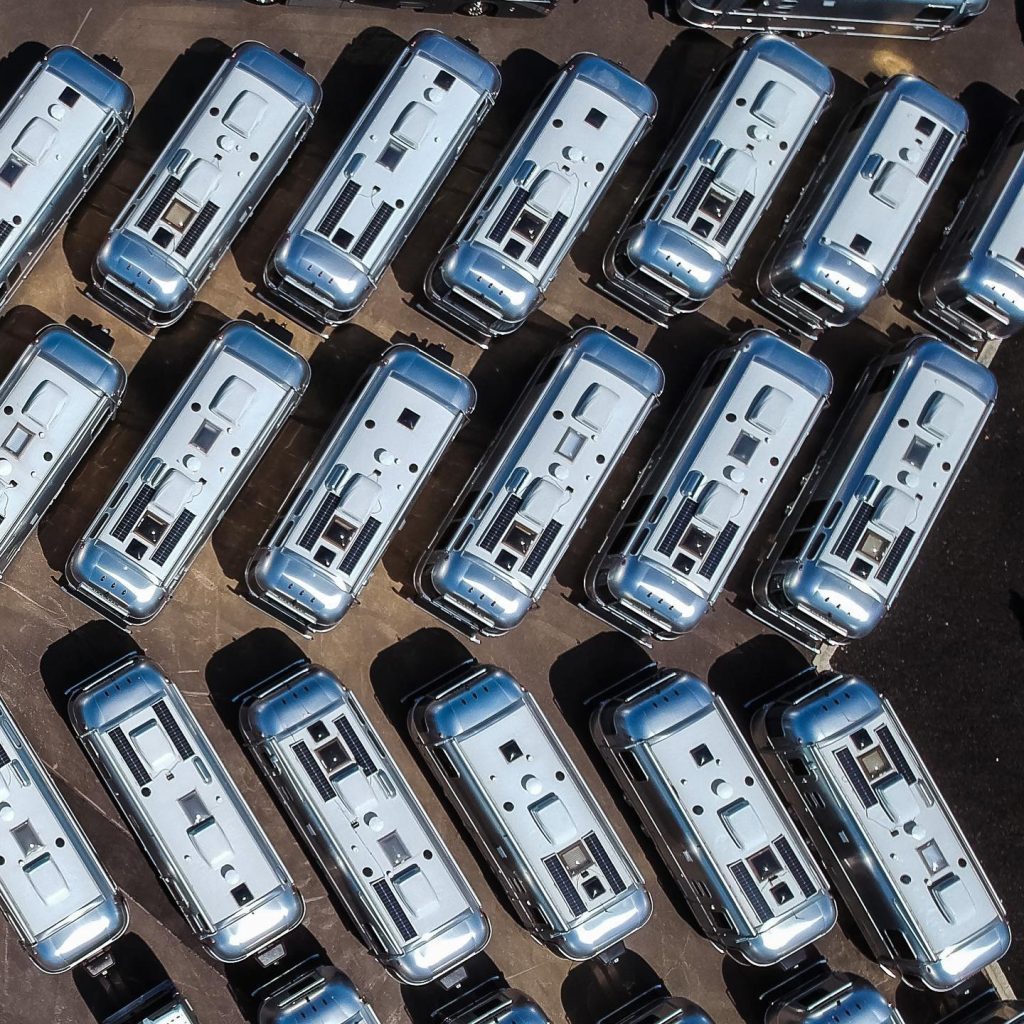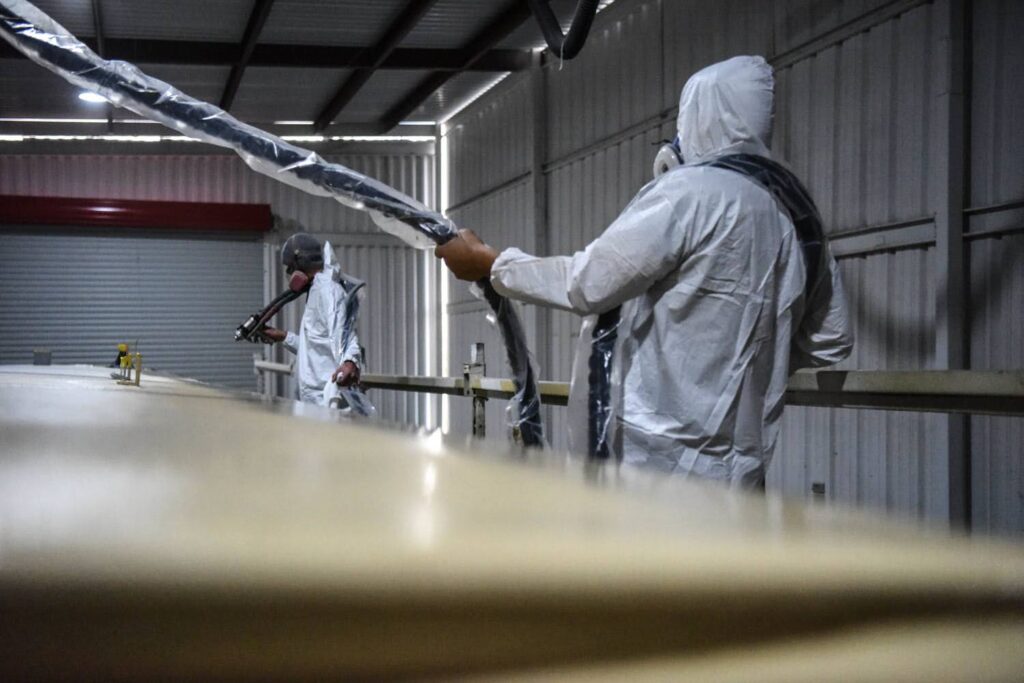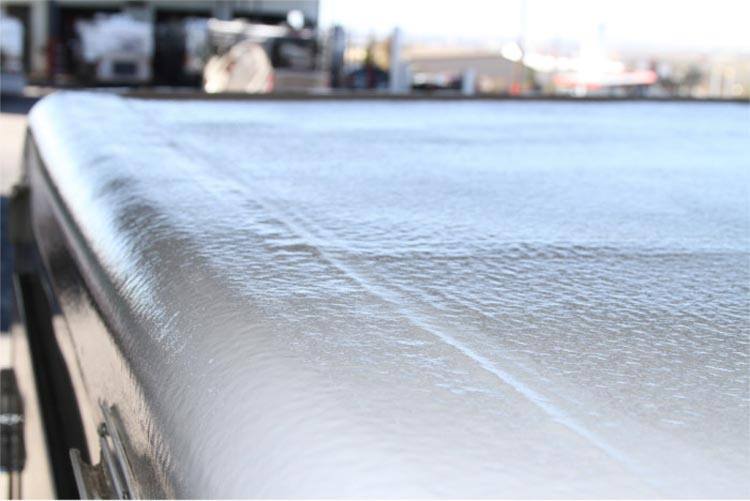Maintaining your RV’s roof is essential due to its exposure to weather conditions and varying temperatures, which can result in a range of issues. Many RV owners face challenges such as leaks, cracks, and general wear and tear that can affect the longevity and appearance of their vehicle’s roof. In this blog post, we will discuss options for coating an RV roof and examine a popular product called polyurea, aiming to assist you in making an informed choice on how best to safeguard and extend the lifespan of your RV’s roof.
Common RV Roof Issues and How Roof Coatings Can Help
Before delving into the choices for roof coatings, it is crucial to grasp the issues they are meant to tackle. Here are some common problems that RV owners encounter;
Leakages: Over time, leaks may develop on your RV roof, leading to water damage inside the vehicle.
Cracks: Structural wear and tear can cause cracks in the roofing material, exposing your RV to damage from various factors.
Heat-related damage: Intense sunlight can dry out your RV roof, resulting in warping and cracking.
UV deterioration: Prolonged exposure to UV rays can compromise the strength of your RV’s roof, causing the fading and weakening of materials. Thankfully, a good roof sealant can assist in managing and avoiding these problems. By improving the longevity, ability to withstand weather conditions, and general effectiveness of your RV’s roof,, choosing a sealant can extend its lifespan and lower upkeep expenses.
Different RV Roof Coating Options
When choosing an appropriate roof coating for your RV, several options are available, each with its own benefits and drawbacks. Let’s explore a few of these and their key attributes:
Silicone Coatings
Pros: Excellent UV resistance, water-resistant, reduces heat buildup, and adheres well to various materials.
Cons: It is relatively expensive, requires precise application, and may collect dirt and airborne debris.
Acrylic Coatings
Pros: Budget-friendly, UV resistant, available in a range of colors, and environmentally friendly.
Cons: Less flexible, may require periodic reapplications, and less effective in damp or humid climates.
Elastomeric Coatings
Pros: Highly flexible, waterproof, easy to apply, and can extend the life of your RV’s roof.
Cons: It may require frequent maintenance, can be susceptible to dirt buildup, and is less effective in colder temperatures.
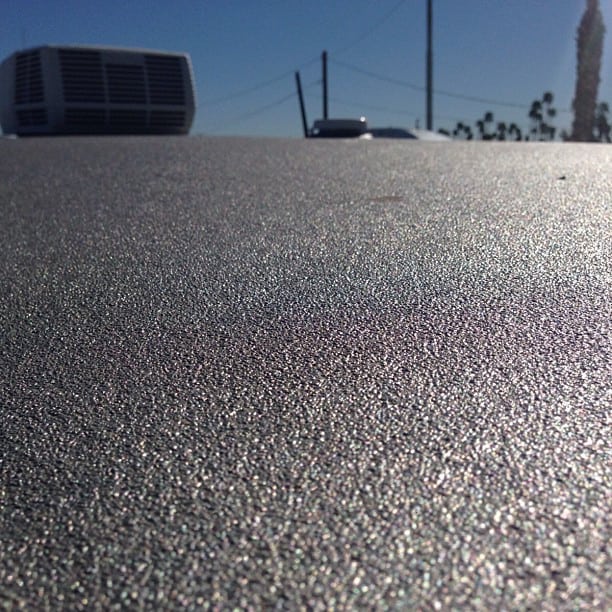
Polyurea Coatings
Polyurea is an emerging player in the RV roof coating market. This innovative product offers numerous advantages that have garnered the interest of RV owners and repair professionals alike.
Features and Benefits
- The fast curing process, reducing downtime during application.
- Highly versatile and can adhere to a wide array of vertical and horizontal surfaces.
- Highly flexible, allowing the coating to expand and contract with the RV’s movements.
- Resistant to water, chemicals, UV radiation, heat, and abrasion.
- Low maintenance and long-lasting
Workability and Suitability
One of the standout features of polyurea is its fast curing process, which allows for rapid application and minimal downtime. This can be especially beneficial for RV owners needing quick repairs or who prefer to tackle the task themselves. However, proper surface preparation and
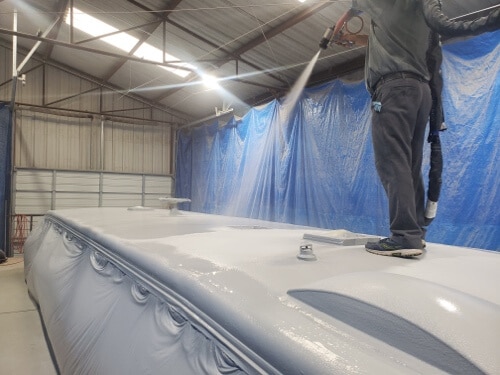
This tough, durable material has several advantages over traditional coatings, making it an excellent choice for RV owners looking for superior protection and longevity.
Polyurea is a spray-applied elastomeric plastic used for waterproofing, corrosion protection, and impact resistance. It is highly flexible and can stretch up to 500% without breaking. The material forms an impermeable barrier that helps prevent water from penetrating through an RV’s roof. It also provides outstanding UV resistance, helping to protect against sun damage and fading.
Unlike traditional coatings such as acrylics or latex paints, polyurea does not require primer or additional topcoats to ensure proper adhesion and maximum durability. The material cures quickly after application, reaching full strength within minutes, while other coatings can take days or weeks to cure completely. This makes polyurea a great choice for RV owners who need a dependable way to protect their investment from the elements with minimal downtime.
In addition to its superior waterproofing properties and rapid curing time, polyurea has several other features that make it ideal for RV roofs. The coating resists dirt buildup better than traditional coatings due to its nonporous surface, which allows dirt particles to roll off when wet from rain or dew. Polyurea also exhibits excellent abrasion resistance, which will withstand wear and tear more effectively than other coatings while maintaining its protective qualities.
As if these features weren’t enough, polyurea also provides superior protection against chemical spills and extreme temperatures compared to traditional coatings like latex or acrylics. This makes polyurea a great choice for those looking for maximum protection, no matter what environmental conditions they may face on their travels.
When it comes to installation times, polyurea also wins: one experienced applicator can install up to 600 square feet in one single day! Compare this with 36 square feet of other coatings—easily making it three times faster—and you can see why so many RV owners are switching to this amazing product!
In short, there’s no question that polyurea is the ultimate roof coating option for recreational vehicles: its superior waterproofing capabilities combined with fast installation times make it an obvious choice over any other type of coating available today. With increased UV resistance, chemical resistance, abrasion resistance and flexibility, polyurea stands out head and shoulders above the competition as the best long-term investment for your RV!

